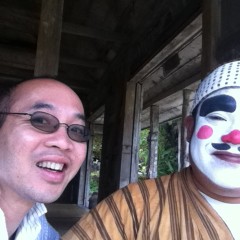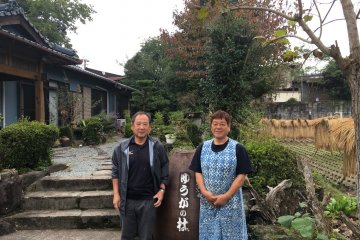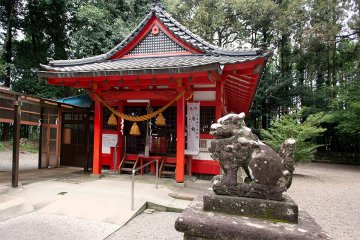The songs of the boatman must have inspired Akiko Yasono, a poet and feminist whose work is now immortalised in a museum after her namesake in Sakai, Osaka.
As mentioned by the local guide, Hiroshi and Akiko Yasano visited Hitoyoshi in 1932 and rode the same boats that I am in today, where they composed several poems. One of them was about the moon in the dark mountain country, guiding the way from east to west so that the people would not get lost.
“From the east, the Kuma River flows, and from the west, the sky of the mountain country is like a sign of the moon.” The Kuma River itself was no slouch, being the longest river in Kyushu at 115km long.
Boatman played a part in the early days of travel, the movement of people, the flow of exchange and the rethinking of customs, the very ideas that opened Japan to scientific thinking of the West, as well as ideas that opened up the lives of women like Akiko.
So today we are playing tribute to these boatmen, whether they are from Kumamoto, Osaka or elsewhere. These boatmen may sing, not because they liked it as a hobby, but part of expressing their joys and tribulation of everyday life. It pays tribute to a time when it was so difficult and arduous to get here, it was almost like a pilgrimage, to come here by steam train and boat. And to make us think, when we can now get here so easily, as to whether we take this place for granted, or take the time to immerse in this place, to get a sense of place. To slow down and take in the nature and the hundreds of years of history, of man and nature, like the birds that migrate here, or the trees that were here for centuries.
If you ever listened in to nature? I mean really listen, to slow down and hear its heartbeat? To feel what the animals feel, to be totally immersed with your mind, heart and soul? It is said that fish listen to the sound of the corals to help them find their way. For a moment, the oars have stopped, I look down at the crystal clear water, and the Ayu that are finding their way home.
Above me are a flock of Great Egrets, coming here for summer. Each ray of sunshine, each drop of rain, is a letter or note from the heavens. All is silent, except for the echo of the wind. The river isn’t just a source of life, and a way to and from the outside world. It plays tribute to Japanese philosophy and aesthetics, like shochu, the favoured working man's drink in this part of Kyushu. This is the land of the immortals where even the birds are honoured in folk art, and so they must have something right? For example, the water tapped by the nearby hot springs is fifty years in the making, from rainwater to hot springs, enriched with minerals that heal your body and soul.
“Make fun with everyone. Don’t get angry, remember to laugh and talk a lot”, the boatman reminded me.















